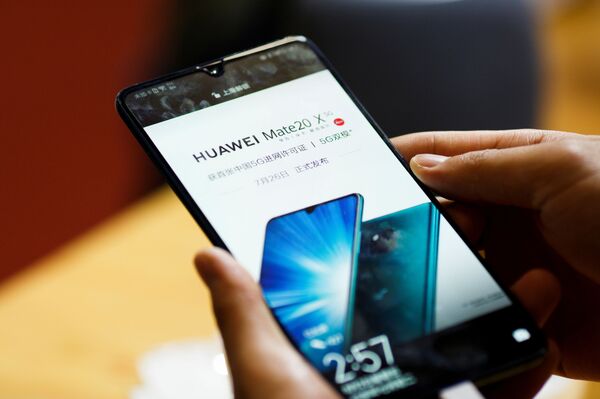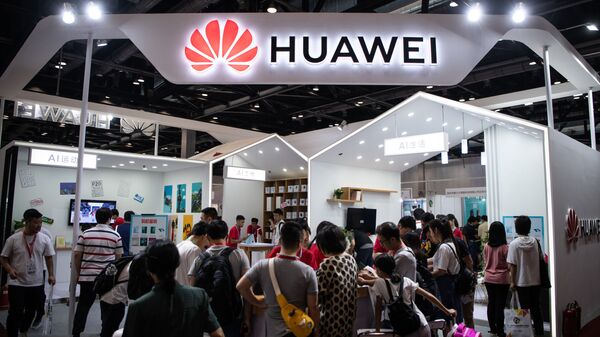Huawei has struck deals on more than 50 commercial 5G contracts around the world despite being blocked from some major markets, including Japan and Australia, along with the escalating China-US trade war, the company revealed on Tuesday, as reported by CNBC.
The publicly released numbers signify that Huawei is currently ahead of its closest rival telecom brands, such as Nokia which in July reported to have 45 commercial 5G contracts, while Ericsson scored only 24 deals.
5G networks refer to fifth-generation technologies associated with super-fast data transmission and the ability to support driverless vehicles.
“Huawei’s 5G products are world leading products, with the highest level of maturity in terms of commercialisation. And Huawei will continue to develop its 5G technology steadily”, said Huawei Board Director William Xu in an interview with CNBC on Tuesday that was broadcast in Mandarin.
William Xu also stated that Huawei welcomes an “open and collaborative world”, and while commenting on the US initiative to blacklist the company and the need to look for new core technology suppliers outside of North America, he noted that Huawei was ready to cooperate with other states.
“Huawei welcomes US companies and suppliers to continue in providing their products and components to Huawei, but at the same time we support worldwide cooperation in a supply chain”, he said.
When asked about what would happen if some companies would not be able to supply Huawei in the long term, the board director argued that this “has already happened”.
“What you suggest has already happened. But against these circumstances, Huawei’s business remains robust and stable", William Xu said.
Amid Huawei’s recent successes in scoring deals with major worldwide mobile carriers, the US is continuing to pressure the Chinese telecommunications company and its key chain suppliers, as it believes that the telecom giant is collaborating with the Chinese government by conducting spy activities in the US - charges that the company has repeatedly denied.

On Tuesday, Huawei also rejected accusations from Portuguese inventor Rui Pedro Oliveira, who claimed that Huawei had stolen his design technologies used for the production of the Huawei EnVision 260 panoramic camera, an incident that was reported by The Wall Street Journal last week.
“These allegations are false", Huawei said in a statement, arguing that it “categorically rejects Mr Oliveira’s claims of patent infringement”. The multinational company also insisted that Portuguese inventor had taken advantage of the current geopolitical situation, which is unfavourable to Huawei. The United States Department of Justice is, however, determined to look into the claim.
“For the past several months, the US government has been leveraging its political and diplomatic influence to lobby other governments to ban Huawei equipment. Furthermore, it has been using every tool at its disposal — including both judicial and administrative powers, as well as a host of other unscrupulous means – to disrupt the normal business operations of Huawei and its partners", the Chinese company said in a statement, reported by MG.
In January 2019, US authorities issued indictments against Huawei and its American affiliates by accusing the company of a range of activities, including industrial espionage and wire fraud, subsequently blacklisting Huawei and around 70 of its subsidiaries and by pressuring major US tech firms to stop sales of hardware technologies to the Chinese company.
The US has also been pushing for its allies to keep China’s companies, especially Huawei, out of the EU’s 5G plans, using security concerns as a pretext. For example, on 2 September US Vice President Mike Pence and Polish authorities signed a declaration on the 5G network design that outlined strict guidelines for companies engaged in the spread of fifth-generation technologies. Nevertheless, major industrial economies such as Germany and the UK have not endorsed plans to keep Huawei out of the 5G rollout, with the major British mobile network EE openly declaring its intentions to work with the Chinese company.
In the meantime, an escalation of the US-China trade war last week led to even more economic pressure on the telecom giant, as Donald Trump announced a hike on the existing tariffs on $550 billion worth of imports from China, with Huawei finding itself caught in the standoff between the economic powerhouses.
Huawei remains resilient in the face of legal and economic pressures from the US, as the Chinese telecommunications equipment company reported a rise in its revenues by 23% in the first half of 2019.


